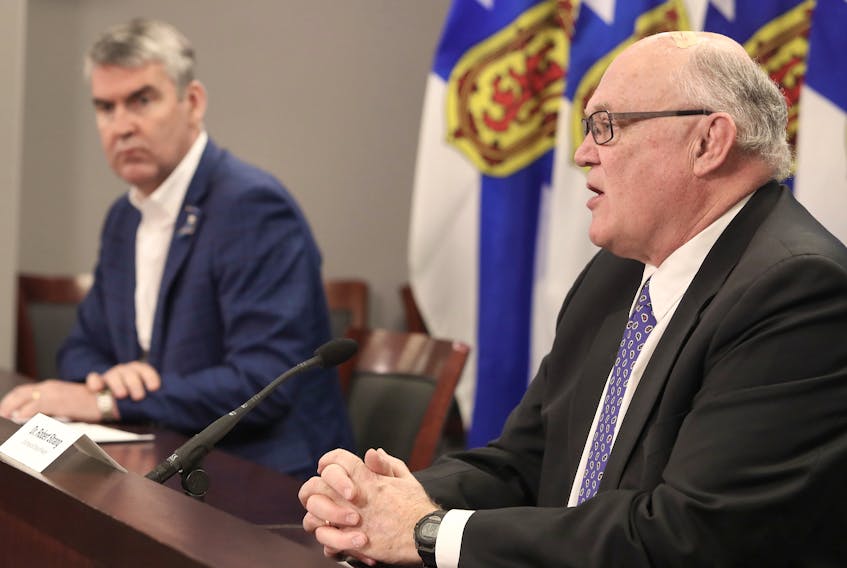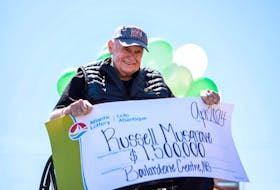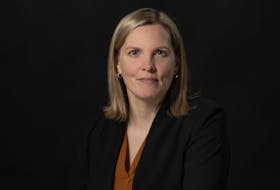Nova Scotia is easing visitor restrictions for the province's nursing homes and homes for people with disabilities now that Northwood's facility in Halifax is free of active COVID-19 cases.
Premier Stephen McNeil and Dr. Robert Strang, the province's chief medical officer of health, made the announcement on Wednesday during a teleconference update with media. They also reported that no new cases were found in testing performed on Tuesday, and no new deaths have occurred.
“Effective Monday, June 15, visits can resume, but they must happen outside, and visitors must stay six feet apart,” McNeil said. “There will be additional measures in place to keep residents, staff and visitors safe.”
“I know this is not exactly what you were hoping for and we understand your craving for that long-awaited hug – we're not there yet. But sitting in the fresh air in a visit with your loved ones is a good first step and if we properly do this and keep everyone safe, we'll be able to get that hug when the time is right.”
Strang said the increased risk to people with underlying health conditions requires a slow and careful approach to allowing visitation to start again.
“I know that the last few months have been particularly challenging for residents of these facilities as well as their families,” Strang said. “I can only imagine how hard it is not to have been able to see your loved one, your family member, who lives in a residential setting. Very challenging, indeed.”
“I know this is not exactly what you were hoping for and we understand your craving for that long-awaited hug – we're not there yet."
- Premier Stephen McNeil
In addition to restricting visits to designated outdoor areas determined by each facility, only two people may visit a resident at any one time, Strang said. The visitors must maintain a physical distance of two metres from the resident. All visits will be overseen by facility staff.
Screening, masks
He also said visitors will be screened with questions about whether they have any of the symptoms that could be related to COVID-19. Anyone who has those symptoms will not be allowed to visit.
“We're also asking that any visitors wear the non-medical mask. And certainly anybody that's sick or in any way feeling unwell should not even consider going visiting, even if you may have a scheduled visit. It's just too risky.”
Public health will also track the date and time of visits so that if a case does come up, public health can follow up.
“This is the minimum set of requirements that we are putting forward from Public Health to the continuing care sector, but individual facilities may put additional protocols on top of that.”
He cautioned that some facilities may not be ready for the June 15 start, he said. It will be up to each one to decide when they are comfortable allowing the visits, which should be arranged ahead of time through each facility according to their own criteria.
“I would ask Nova Scotians to be a bit patient, because I think a lot of the facilities are planning on reaching out,” Strang said. “They know who the family members are and they have contact information. So, we don't want to flood our long-term care facilities with lots of people contacting them. So I would ask Nova Scotians to be a little bit patient.
"You will, in all likelihood, hear in the next few days if you have a family member who's in a long-term care facility – or one of the other facilities we talked about under Community Services – you will be hearing in all likelihood from those facilities about … what are the steps to take to actually make an arrangement and have a specified, if you will, an appointment.”
It may be the end of June or into July before things can be relaxed further, Strang said.
“My hope is to have very low and stable epidemiology and then we can start to look at a whole range of things being further relaxed, including what the next steps might be in terms of visitation in our residential care centres.”
The update also said the province has “reconciled and consolidated” sources to provide a more accurate report of cases. The “Panorama public health reporting system” indicates Nova Scotia has a total of 1,061 confirmed cases of COVID-19. No new cases were identified in testing performed on Tuesday.
One new case
The total number of cases increased by one, to reflect a Nova Scotian who tested positive for COVID-19, but who is not currently in the province and was not tested here, Strang said.
The QEII Health Sciences Centre's microbiology lab completed 691 Nova Scotia tests on Tuesday.
To date, Nova Scotia has 46,668 negative test results, 1,061 positive COVID-19 cases, 62 deaths, and five active COVID-19 cases. Two people are currently in hospital, both in ICU. Nine-hundred and ninety-four cases are now resolved. Cases have been identified in all parts of the province.
Strang said he has to go to New Brunswick on Thursday for minor surgery related to a minor skin cancer and so will be self-isolating for the 14 days following his return to Nova Scotia.
McNeil followed that announcement by saying there will be a break in video conferences for the time being, with COVID-19 information being shared through news releases unless there is a spike in cases.









